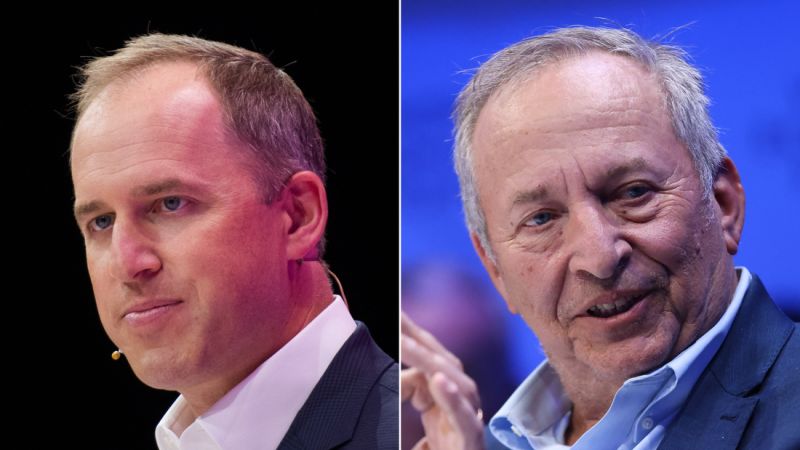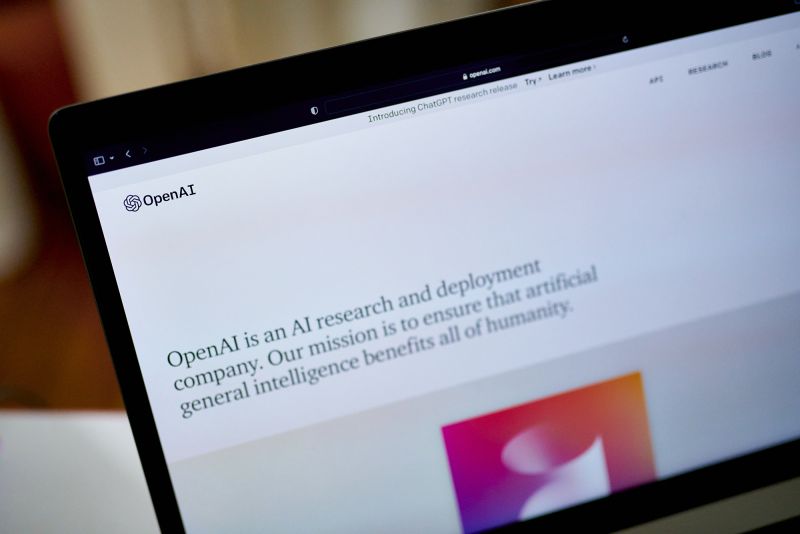
Unraveling the Events: OpenAI's Week of Triumphs and Setbacks

OpenAI's tumultuous leadership crisis abruptly concluded with a cryptic announcement, shrouding its future in uncertainty Discover who emerged victorious and who faced setbacks
The leadership crisis at OpenAI came to a sudden end with a brief announcement that would have a significant impact on the company's future. In a return to the status quo, Sam Altman was reinstated as CEO and the lucrative business partnership with Microsoft, which heavily invested in the company, remained unchanged as Microsoft intensified its AI research efforts.
The agreement represents a significant moment for OpenAI and the broader field of artificial intelligence. The tumultuous week ended with a major win for Altman, supporters of widespread AI adoption, and some of the country's most prominent figures. This victory came at the expense of AI skeptics who, by many reports, failed in their attempt to take a principled stand against the long-term risks of the technology.
Who came out on top
Sam Altman emerges as the clear victor in this entire debacle. Following his abrupt removal from his position on Friday, Altman swiftly garnered overwhelming support from the majority of OpenAI staff, who signed a declaration of loyalty, highlighting the profound divide between himself and the board. His triumphant return to OpenAI, despite being summarily dismissed by the board, serves as a personal vindication, further solidifying his carefully curated image as a charismatic visionary who is single-handedly uncovering the mysteries of the universe, for better or for worse.
Microsoft CEO Satya Nadella downplayed the tech giants role in the crisis, emphasizing that "nothing changes" with OpenAI, regardless of what happens with Altman. Nadella's focus is on ensuring uninterrupted delivery of AI technology to Microsoft's customers, whether Altman remains at OpenAI or joins Microsoft. However, Microsoft's significant investment in OpenAI gives it a vested interest in the outcome. Nadella suggested that if Altman returns as OpenAI's CEO, Microsoft would have a strong influence on the company's governance.
Nadella emphasized that they will never allow themselves to be caught off guard again, and are committed to ensuring that their governance is improved to prevent future surprises. He mentioned the possibility of having a board observer or a full seat on OpenAI's board as a potential step in this direction.
New additions to the board include Bret Taylor, the former co-CEO of Salesforce, and Larry Summers, the former Treasury Secretary. Their appointments further solidify OpenAI's alignment with the country's wealthiest and most influential elite.
Left: Bret Taylor; right: Larry Summers.
Nathan Laine/Hollie Adams/Bloomberg/Getty Images
Taylor doesn't just have a background as a former CEO of a major tech company. He also served as the chief technology officer of Facebook and in 2022, as the chair of Twitter, he successfully spearheaded Elon Musk's $44 billion acquisition of the social media giant, showcasing his strategic corporate prowess.
On the other hand, Summers, the former president of Harvard University, faced backlash for his suggestion that "innate differences" contribute to the underrepresentation of women in scientific careers. His comments were widely condemned as sexist, leading Summers to issue an apology.
Who came out on bottom
OpenAIs Ousted Board Members Reveal Push to Slow AI Development: The recent shakeup at OpenAI not only revitalizes Altmans mythos, but also promotes the ideology he stands for - a belief in the rapid commercialization of generative AI. However, with some key figures behind Altmans ouster also being removed, it seems that the perspectives these board members held may be a casualty of the affair. This includes a deep fear regarding the long-term, potentially existential risks of AI.
In the letter signed by hundreds of OpenAI staffers threatening to quit, employees reported that board members claimed allowing the company to be destroyed "would be consistent with the mission" of OpenAI, which is to "ensure that artificial general intelligence benefits all of humanity."
The OpenAI website on a laptop computer arranged in the Brooklyn borough of New York, US, on Thursday, Jan. 12, 2023.
Gabby Jones/Bloomberg/Getty Images
The belief of OpenAI's board that the company's downfall would ultimately benefit society reflects the concerns of a vocal contingent in the AI field. This group has called for pauses in AI development, increased research to "align" AI with human-centered values, and expressed worries about the unchecked power of a truly sentient super-intelligence. Emmett Shear, who was appointed as OpenAI's interim CEO for a brief period, has also raised similar concerns. Some have argued that the fallout from the leadership crisis represents a setback for effective altruism, a movement with which certain OpenAI board members are reportedly affiliated.
It seems that OpenAI is not poised to engage in an all-out sprint in AI development that completely disregards risk. Summers has been vocal about the near-term impacts of AI on labor. Additionally, after impressing US lawmakers with calls for AI regulation, Altman is expected to remain a prominent figure in the global debate over rules for artificial intelligence.
Regardless of whether they deserved it or not, the controversy seems to have significantly harmed the reputation of some staunch AI skeptics, while boosting the success of companies like Microsoft and Altman who are advocating for greater public access to artificial intelligence. This could have profound and enduring implications for the future of AI development.















